
Bordeaux: The Heart of France's Wine Country
The Bordeaux Wine Region in France is a dream come true for wine lovers. Located in the southwestern part of the country, this area is famous for its vineyards and wineries. Bordeaux is not just about wine; it's also about history, culture, and stunning landscapes. With its charming villages and beautiful chateaux, visitors can enjoy both the scenery and the local wine. The city of Bordeaux itself is a UNESCO World Heritage Site. Its historic center is filled with grand architecture, from the Place de la Bourse to the impressive Bordeaux Cathedral. Strolling through the narrow streets, you'll find plenty of cafes and shops where you can taste local delicacies and, of course, wine. The region's vineyards are some of the most famous in the world. Names like Medoc, Saint-Émilion, and Pomerol are synonymous with top-quality wine. Many wineries offer tours and tastings, giving visitors a chance to learn about the winemaking process and sample some of the best wines. Whether you are a wine aficionado or just enjoy a good glass now and then, Bordeaux will captivate your senses.
Local tips in Bordeaux Wine Region
- Visit during the harvest season in September and October for a unique experience.
- Book winery tours in advance as they can fill up quickly.
- Try the local cuisine, especially dishes that pair well with Bordeaux wines.
- Rent a bike to explore the vineyards at your own pace.
- Stay in a chateau for an authentic and luxurious experience.
Bordeaux: The Heart of France's Wine Country
The Bordeaux Wine Region in France is a dream come true for wine lovers. Located in the southwestern part of the country, this area is famous for its vineyards and wineries. Bordeaux is not just about wine; it's also about history, culture, and stunning landscapes. With its charming villages and beautiful chateaux, visitors can enjoy both the scenery and the local wine. The city of Bordeaux itself is a UNESCO World Heritage Site. Its historic center is filled with grand architecture, from the Place de la Bourse to the impressive Bordeaux Cathedral. Strolling through the narrow streets, you'll find plenty of cafes and shops where you can taste local delicacies and, of course, wine. The region's vineyards are some of the most famous in the world. Names like Medoc, Saint-Émilion, and Pomerol are synonymous with top-quality wine. Many wineries offer tours and tastings, giving visitors a chance to learn about the winemaking process and sample some of the best wines. Whether you are a wine aficionado or just enjoy a good glass now and then, Bordeaux will captivate your senses.
When is the best time to go to Bordeaux Wine Region?
Iconic landmarks you can’t miss
La Cité du Vin
Explore the world of wine at Bordeaux's La Cité du Vin: immersive exhibits, tastings, and panoramic views await in an architectural marvel.
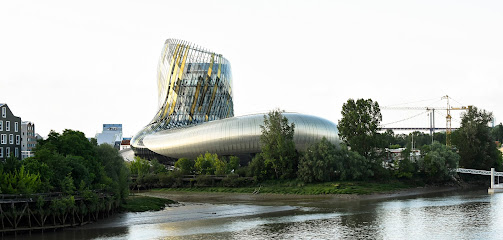
Place de la Bourse
Experience the grandeur of Bordeaux at Place de la Bourse, a stunning architectural masterpiece with a captivating water mirror reflecting its timeless beauty.
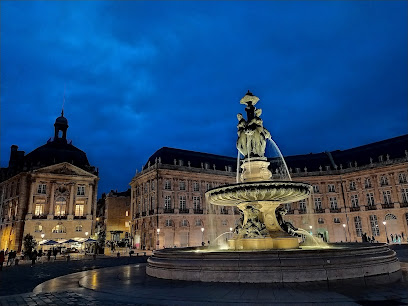
Jardin Public
Escape to Bordeaux's historic Jardin Public: a blend of nature, culture, and tranquility in the heart of the city.
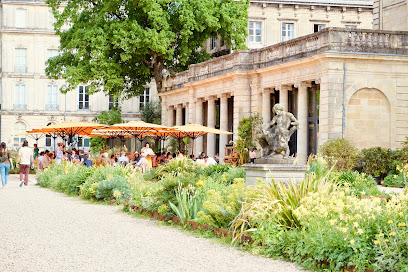
Monument aux Girondins
A majestic fountain and column in Bordeaux honoring the Girondins, symbolizing liberty and the French Revolution's ideals.
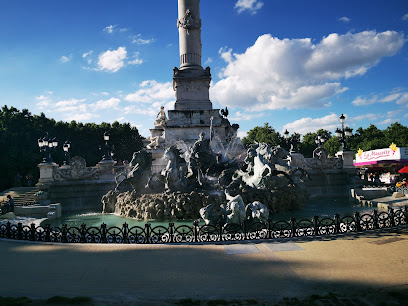
Porte de Bourgogne
Discover the Porte de Bourgogne in Bordeaux, a neoclassical gateway offering a glimpse into the city's rich 18th-century history and architecture.
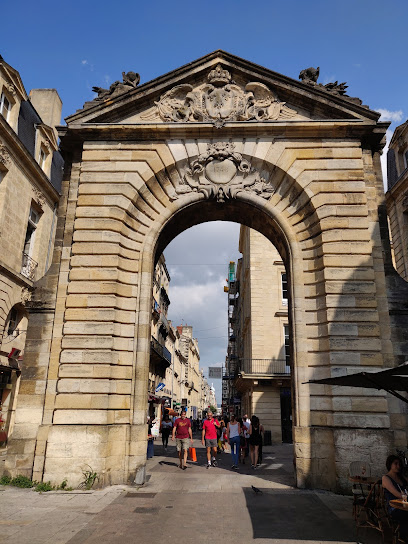
Grosse Cloche
Discover Bordeaux's iconic Grosse Cloche, a historic bell tower that has chimed through centuries of the city's joys and sorrows.
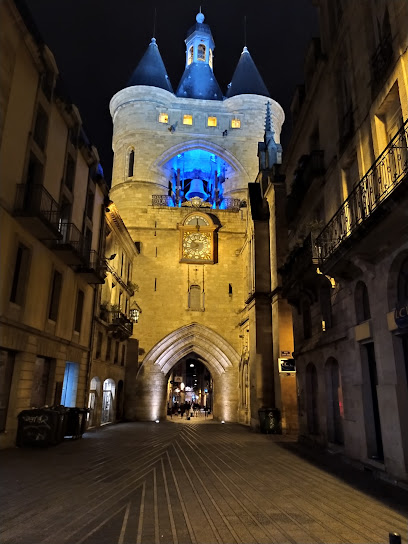
Porte Cailhau
Explore Bordeaux's majestic Porte Cailhau: a medieval gate offering history, stunning views, and a glimpse into the city's glorious past.
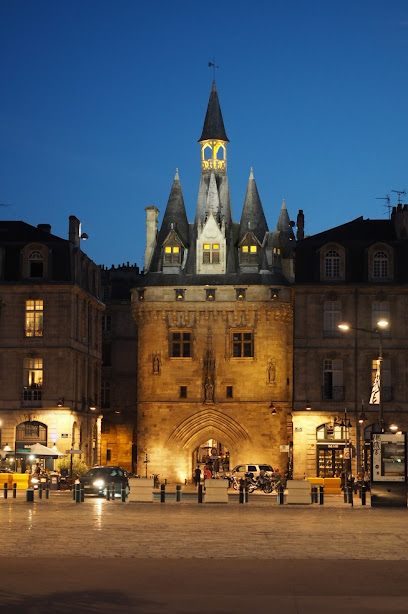
Pey Berland Tower
Climb the historic Pey Berland Tower for panoramic views of Bordeaux and a glimpse into the city's rich past.

Pont Jacques Chaban Delmas
Experience the breathtaking views and stunning architecture of the Pont Jacques Chaban Delmas, a landmark bridge in the heart of Bordeaux.
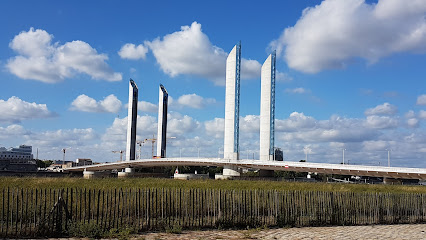
Porte d'Aquitaine
A majestic 18th-century gateway in Bordeaux, the Porte d'Aquitaine stands as a symbol of the city's rich history and architectural grandeur.
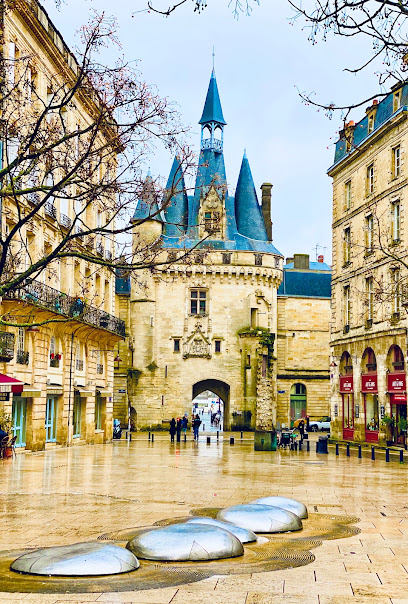
Bordovino Wine Tours
Explore Bordeaux's enchanting vineyards and elegant châteaux with Bordovino Wine Tours, where every sip reveals a story in the heart of France's wine country.
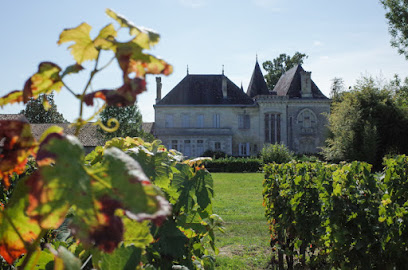
Bordeaux Wine Trails - Wine tours
Experience Bordeaux's wine expertise with guided tours to chateaux, tastings, and vineyard explorations. Discover the heart of French wine culture.
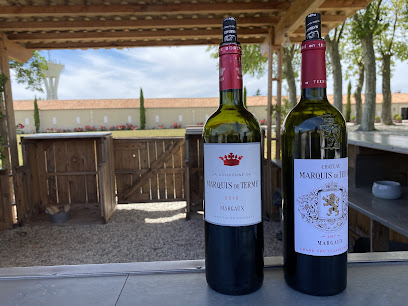
RUSTIC VINES - 33000
Experience the beauty of Bordeaux through tailored wine tours that immerse you in the region's rich culture and exquisite flavors.
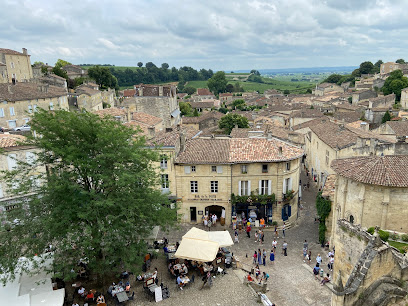
OLALA BORDEAUX - Wine tours & tastings
Explore Bordeaux's rich wine heritage with OLALA BORDEAUX, where immersive tours and tastings await every wine enthusiast.
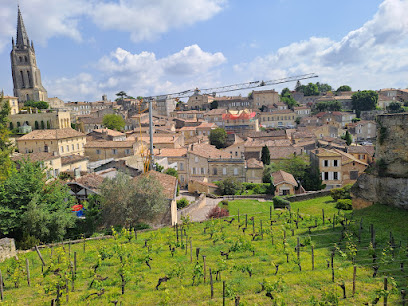
The Wine of Bordeaux
Discover Bordeaux's finest wines at La Vinothèque, a historic cellar offering a vast selection and expert guidance since 1973.
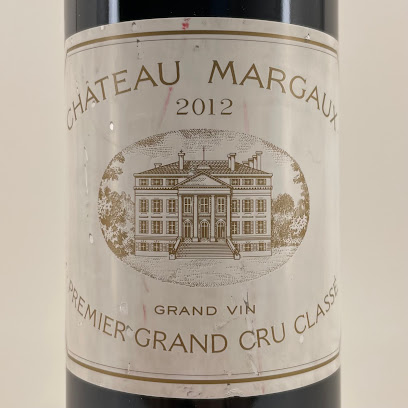
Unmissable attractions to see
Base sous-marine
Explore a former WWII submarine base transformed into a unique cultural space, hosting immersive digital art exhibitions and contemporary performances in Bordeaux's Bassins à Flot district.
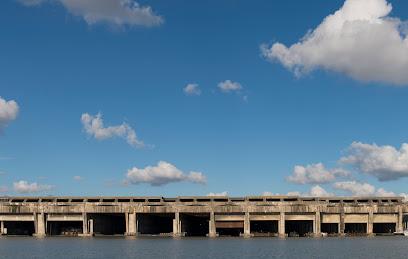
Parc Bordelais
Escape to Bordeaux's largest green space, a 28-hectare park offering tranquil walks, family fun, and a vibrant blend of nature, recreation, and cultural experiences for everyone.
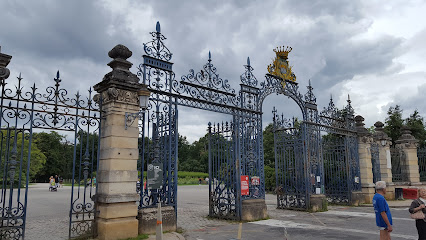
Parc de Bourran
Discover Parc de Bourran in Mérignac: A serene urban oasis with a picturesque lake, diverse botanical collections, and the historic Château de Bourran, perfect for nature lovers and families.
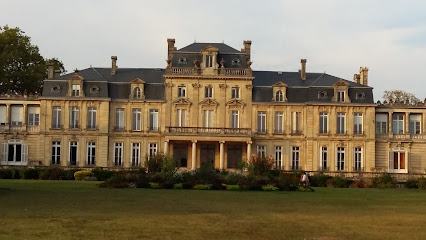
Casino Barrière Bordeaux
Experience the thrill of gaming, live entertainment, and fine dining at Casino Barrière Bordeaux, a premier destination for leisure and excitement on the shores of Bordeaux Lac.
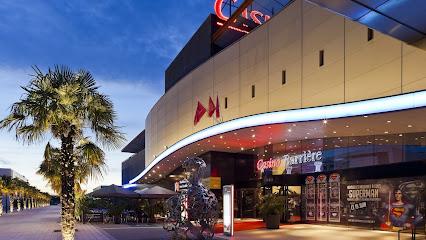
Cap Sciences
Explore interactive exhibits and the wonders of science at Cap Sciences, a vibrant museum located in beautiful Bordeaux, France.
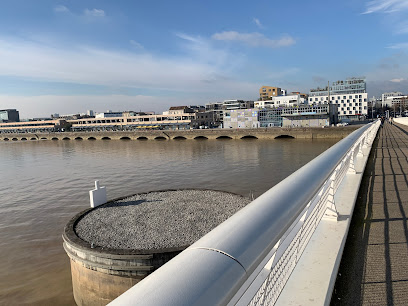
Jardin Botanique de Bordeaux
Discover a world of plants at Bordeaux's Jardin Botanique: Explore themed gardens, eco-friendly greenhouses, and diverse ecosystems in this urban oasis on the Garonne's right bank.
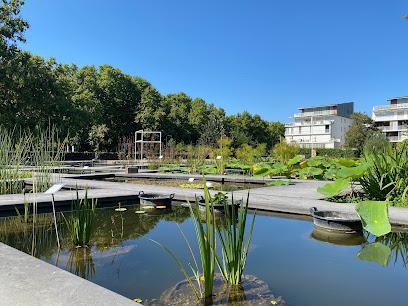
Le Bar à Vin
Discover Bordeaux's exquisite wines at Le Bar à Vin, a chic and accessible wine bar in the heart of the city, offering a diverse selection by the glass in a historic setting.
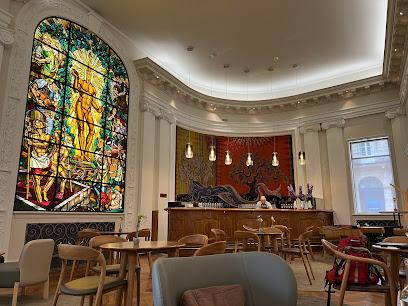
Parc de l'Ermitage Sainte-Catherine
Discover panoramic views of Bordeaux and a tranquil escape at Parc de l'Ermitage Sainte-Catherine, a revitalized quarry transformed into a natural haven with diverse ecosystems.
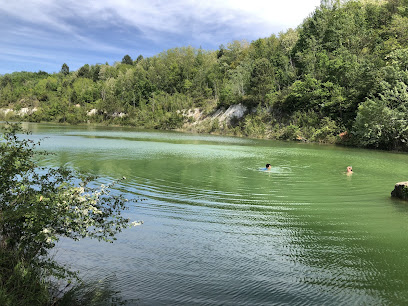
Place Camille Jullian
Discover Place Camille Jullian in Bordeaux: A vibrant square blending history, culture, and modern life, offering a unique experience in the heart of the city's historic district.
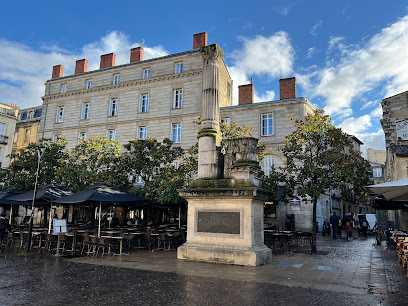
Le Vieux Chaudron
Experience the heart of Bordeaux through its traditional cuisine at Le Vieux Chaudron, a charming restaurant offering authentic flavors and warm hospitality on Rue du Pas-Saint-Georges.
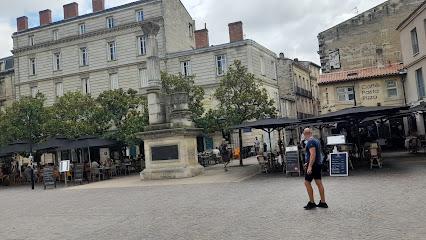
Castle Villandraut
Discover the majestic ruins of Château de Villandraut, a 14th-century fortress built by Pope Clement V, and immerse yourself in the rich history of medieval Aquitaine in the heart of Gironde.
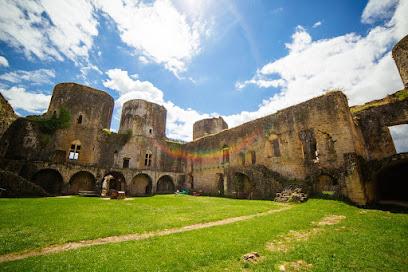
Les Vivres de l'Art
Discover Bordeaux's vibrant art scene at Les Vivres de l'Art, a unique collective housed in repurposed naval warehouses, showcasing diverse art forms and fostering creative expression.
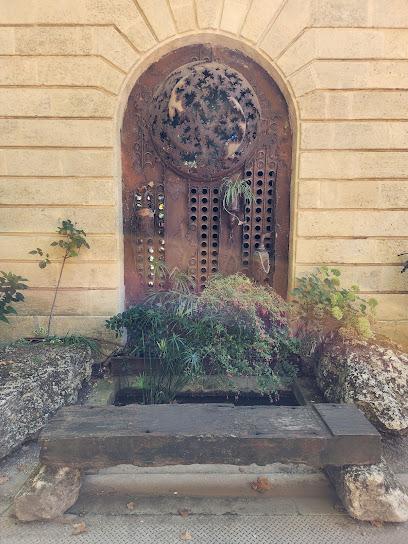
Galerie Bordelaise
Discover a hidden gem in Bordeaux: Galerie Bordelaise, a 19th-century shopping arcade blending history, architecture, and unique boutiques in an elegant, covered setting.
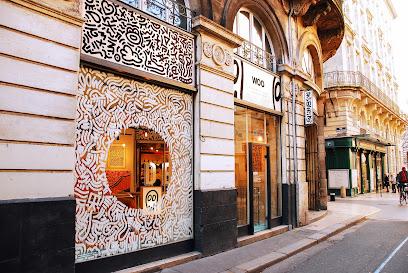
Musée National des Douanes
Discover the fascinating world of French customs at the Musée National des Douanes in Bordeaux, exploring history, art, and seized contraband in a stunning 18th-century setting.
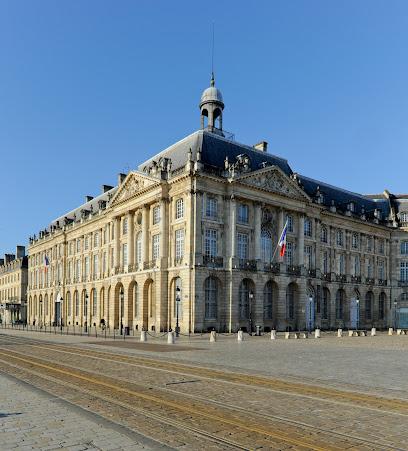
Château de Peixotto
Discover Château de Peixotto in Talence: a neoclassical gem with stunning gardens, blending history, art, and community in the heart of the Bordeaux region.
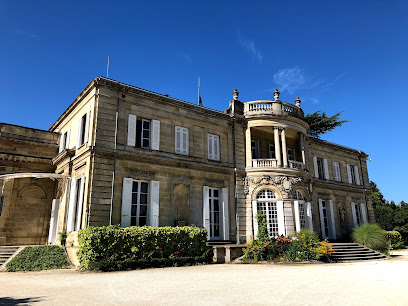
Essential places to dine
Le Quatrième Mur
Experience the elegance of French fine dining at Le Quatrième Mur in Bordeaux, where culinary artistry meets stunning opera house views.
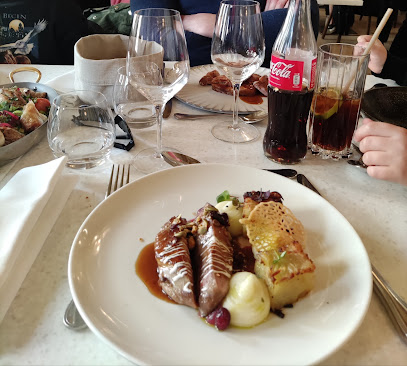
L'Estacade
Experience exquisite French cuisine at L'Estacade with stunning waterfront views in Bordeaux.
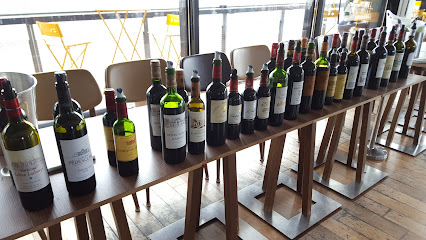
Restaurant Le Plana
Experience authentic French cuisine at Restaurant Le Plana in Bordeaux - where tradition meets taste with every dish.
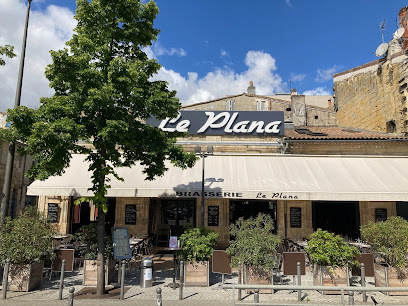
Les Fils à Maman Bordeaux
Discover Les Fils à Maman Bordeaux: A delightful blend of French comfort food and eclectic charm in the heart of Bordeaux.
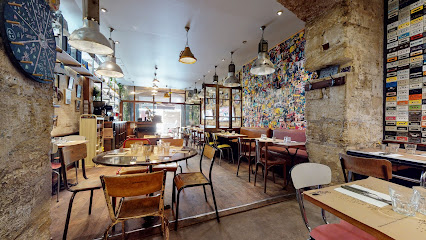
Le 7 Restaurant
Savor exquisite French cuisine with stunning river views at Le 7 Restaurant in Bordeaux - a culinary gem for discerning travelers.
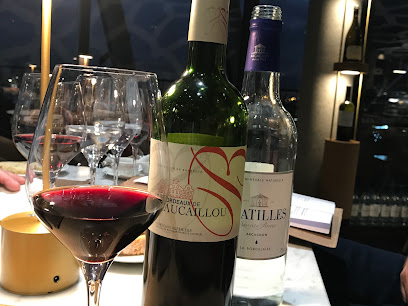
Modjo
Discover the art of fine dining at Modjo in Bordeaux – where modern French cuisine meets health-conscious delights in an inviting atmosphere.
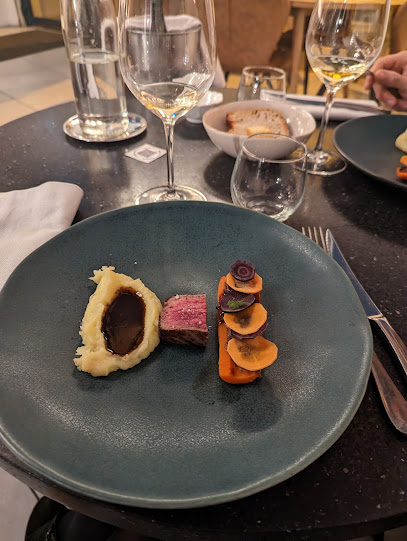
Restaurant les voûtes
Experience exquisite dining at Restaurant les Voûtes in Bordeaux - where local flavors meet exceptional culinary artistry.
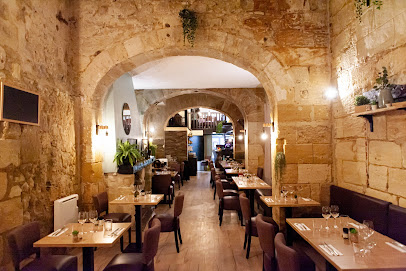
A Cantina Comptoir Corse
Experience authentic Corsican flavors at A Cantina Comptoir Corse in Bordeaux - where exquisite cuisine meets inviting ambiance.
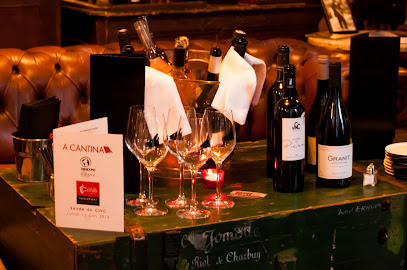
Le Bordeaux
Experience exquisite French cuisine at Le Bordeaux, where tradition meets modern elegance in every dish.
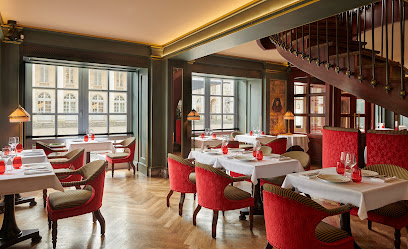
La Tupina
Experience authentic French cuisine at La Tupina in Bordeaux - where rustic charm meets culinary excellence.
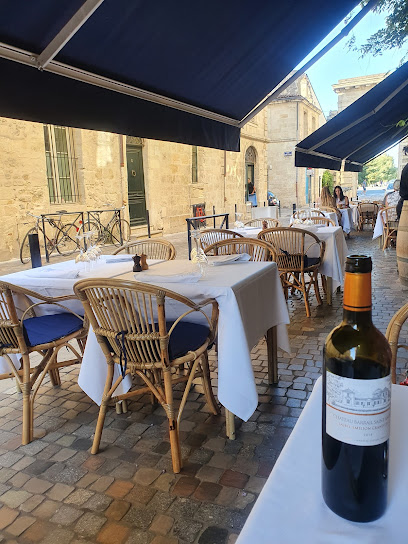
L'Oiseau Bleu
Discover culinary excellence at L'Oiseau Bleu, where haute French cuisine meets impeccable service in the heart of Bordeaux.
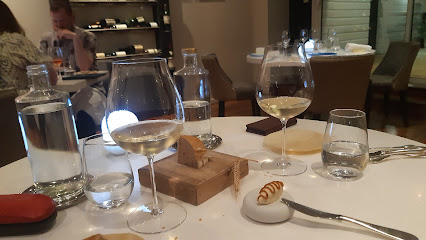
Restaurant Son'
Discover exquisite haute French cuisine in Bordeaux at Restaurant Son', where every meal is a celebration of taste and elegance.
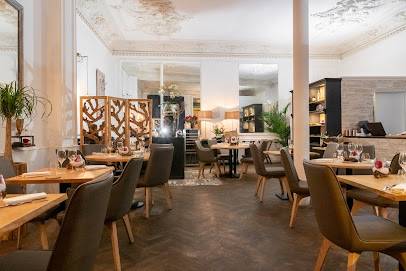
Tante Charlotte
Experience the authentic taste of France at Tante Charlotte in Bordeaux - where tradition meets culinary excellence.
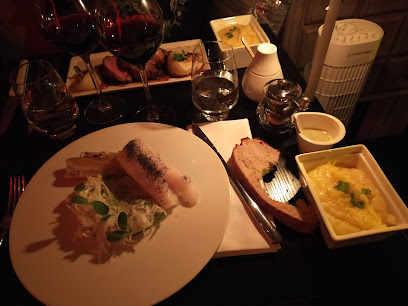
Arcada
Experience the culinary artistry of Arcada in Bordeaux - where fine dining meets exquisite flavors and exceptional service.
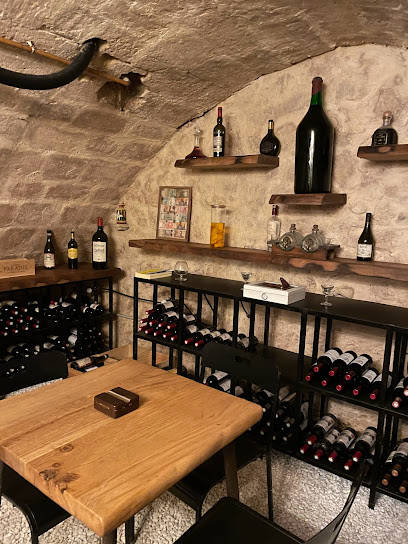
Le Chapon Fin
Experience exquisite French cuisine at Le Chapon Fin in Bordeaux, where culinary artistry meets local flavors in an elegant setting.
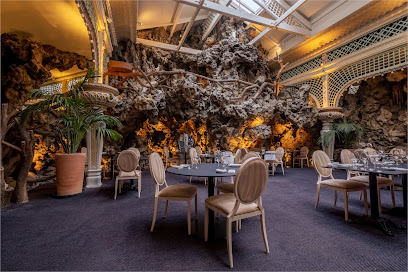
Markets, malls and hidden boutiques
Galeries Lafayette Bordeaux
Explore Galeries Lafayette Bordeaux: A Luxurious Shopping Destination Offering Fashion, Beauty & Home Goods in the Heart of Bordeaux.
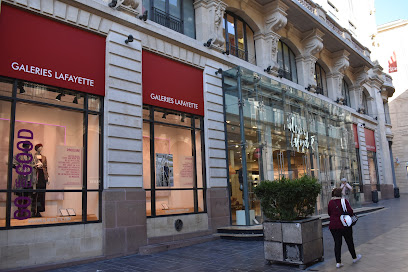
Wine More Time
Experience the finest wines of Bordeaux at Wine More Time, your go-to wine bar and store for tasting and discovery.
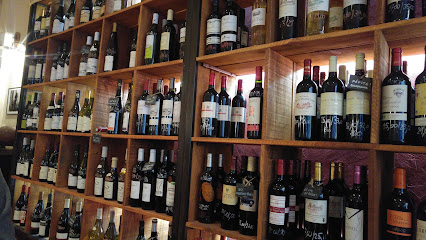
L'Intendant Grands Vins de Bordeaux
Discover the exquisite wines of Bordeaux at L'Intendant Grands Vins de Bordeaux, a premier wine cellar offering a rich selection and expert guidance.
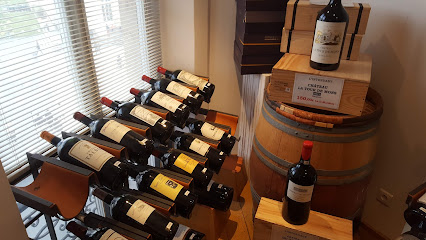
Badie
Discover the heart of Bordeaux's wine culture at Badie Wine Store, where every bottle tells a story of tradition and craftsmanship.
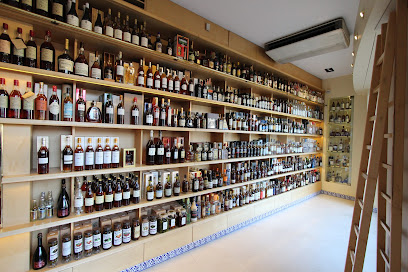
MCV My Wine Cellar
Explore MCV My Wine Cellar, a premier wine store in Bordeaux offering a rich selection of local and international wines for every palate.
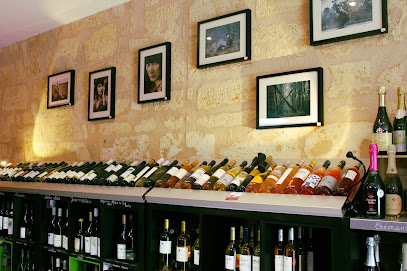
OLALA BORDEAUX - Wine tours & tastings
Experience the heart of Bordeaux's wine culture with immersive tours and tastings at OLALA BORDEAUX.
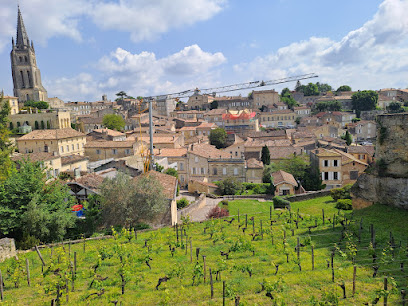
La CUV Saint-Michel : Vins, bières et spiritueux
Explore the finest selection of wines, beers, and spirits at La CUV Saint-Michel in Bordeaux, a must-visit for all beverage enthusiasts.
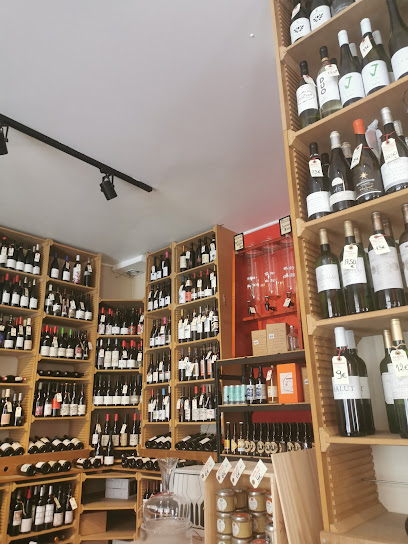
Maison Desire
Explore the enchanting world of wines at Maison Desire, Bordeaux’s premier wine store, with collections from local vineyards and beyond.
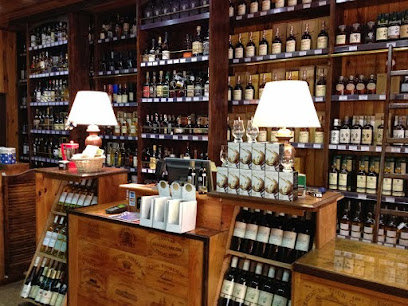
The Wine of Bordeaux
Discover the timeless elegance of Bordeaux wines at Vinotheque Bordeaux, where every bottle tells a story of tradition and craftsmanship.
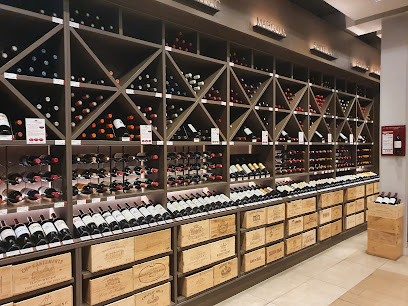
Max Bordeaux / Wine Gallery
Discover the essence of Bordeaux's wine culture at Max Bordeaux Wine Gallery, a haven for wine lovers and enthusiasts alike.
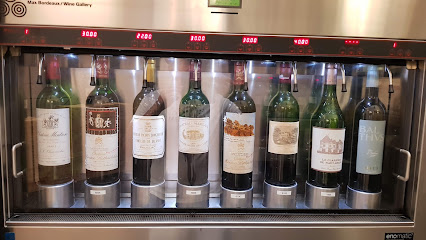
Autres Châteaux
Explore the exquisite selection of local wines at Autres Châteaux, a cozy Bordeaux wine store perfect for enthusiasts and casual visitors alike.
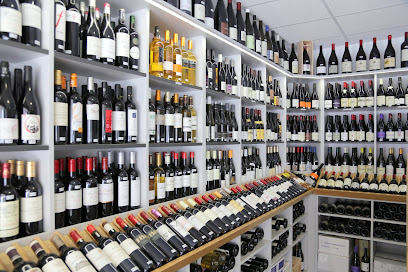
Nicolas
Explore Bordeaux's vibrant wine culture at Nicolas, a premier wine store and bar offering an exquisite selection of local and international wines.
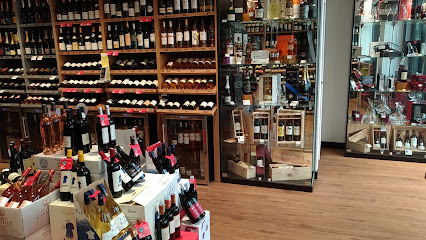
Cave BRIAU
Discover the heart of Bordeaux's wine culture at Cave BRIAU, where fine wines and unique gifts await your exploration.
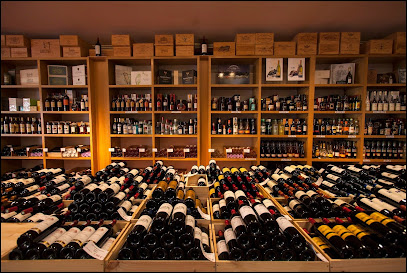
Cousin & Compagnie
Discover the essence of Bordeaux wines at Cousin & Compagnie, where expert advice meets a curated selection of exquisite vintages.
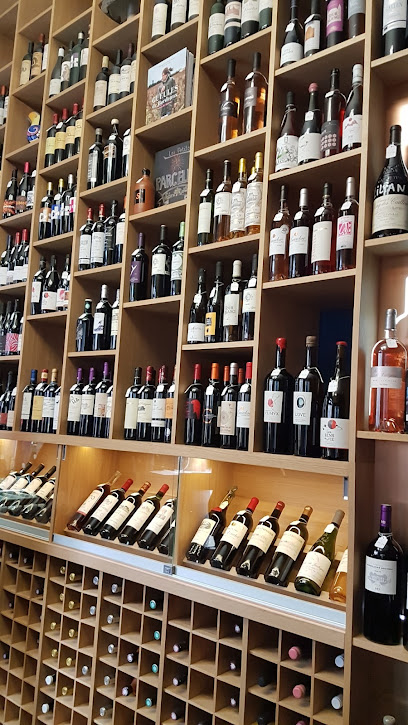
Wineandco
Explore the finest wines of Bordeaux at Wineandco, your premier liquor store for exceptional selections and tastings in the heart of the city.
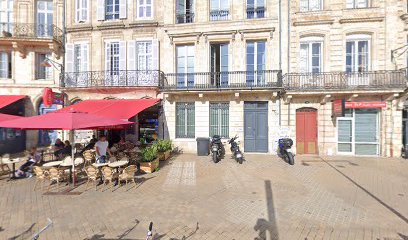
Essential bars & hidden hideouts
La Guinguette Chez Alriq
Experience the vibrant atmosphere and delectable tapas at La Guinguette Chez Alriq, a top culinary destination in Bordeaux's Port Bastide.
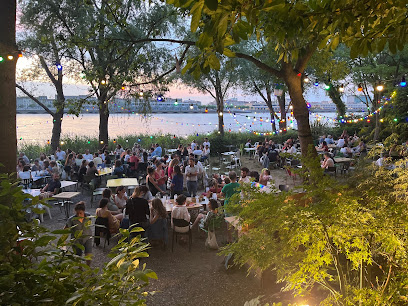
Le Bar à Vin
Experience the heart of Bordeaux wine culture at Le Bar à Vin, where quality meets charm in every glass.
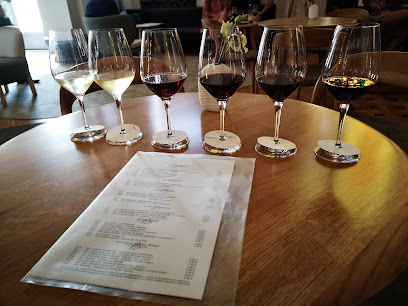
The Frog & Rosbif
Experience the fusion of British pub culture and French cuisine at The Frog & Rosbif in Bordeaux, a must-visit for all food lovers.
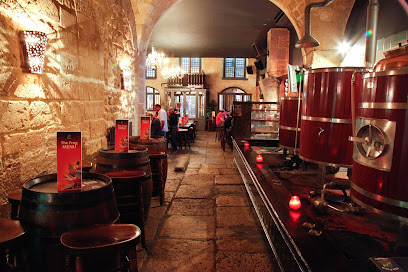
The Grizzly Pub
Discover the cozy charm of The Grizzly Pub in Bordeaux, where local brews meet a vibrant atmosphere and delicious pub fare.
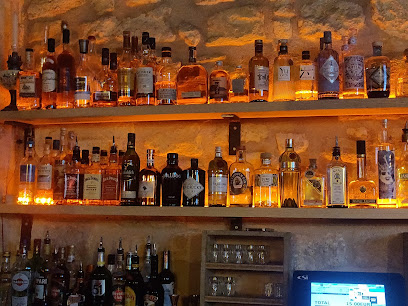
The Blarney Stone
Discover the unique blend of Irish pub culture and Bordeaux charm at The Blarney Stone, your go-to destination for drinks and live music.
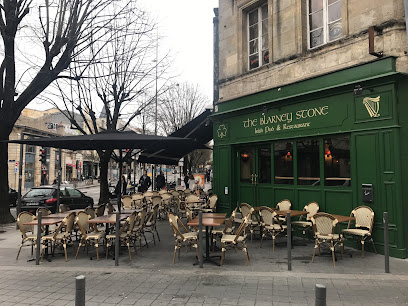
La Comtesse
Discover the vibrant atmosphere and exquisite local wines at La Comtesse, Bordeaux's premier bar for an unforgettable night out.
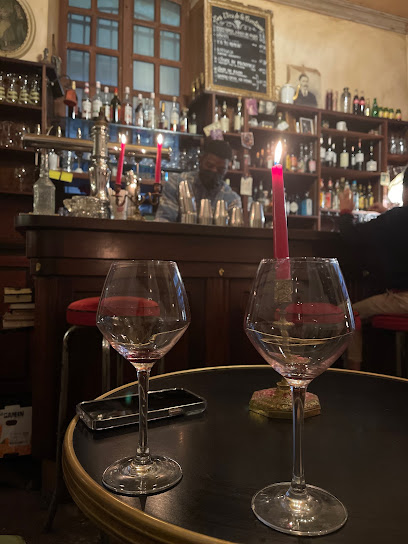
Aux quatre coins du vin
Discover Bordeaux's rich wine culture at Aux Quatre Coins du Vin, where exceptional wines and local delicacies create an unforgettable experience.
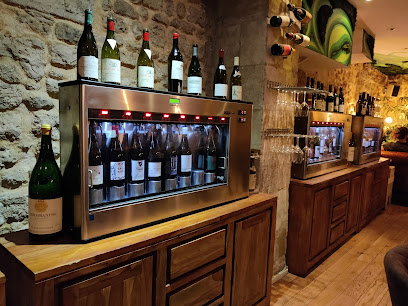
VINTAGE BAR - Rhumerie & Pub
Discover Vintage Bar in Bordeaux: a lively rhumerie and pub offering exquisite cocktails and a vibrant atmosphere perfect for any night out.
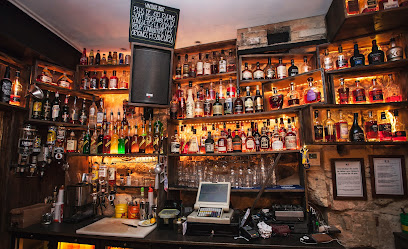
The Dog and Duck
Experience the vibrant atmosphere of The Dog and Duck, a charming bar in Bordeaux offering local drinks and stunning river views.
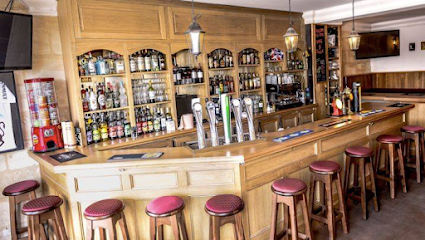
Wine More Time
Experience the essence of Bordeaux at Wine More Time, a charming wine bar and store offering an extensive selection of local wines in a cozy atmosphere.
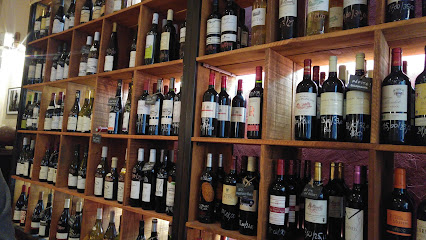
Le fiacre
Discover the vibrant nightlife of Bordeaux at Le Fiacre, a bar that offers a unique blend of cocktails, live music, and a welcoming atmosphere.
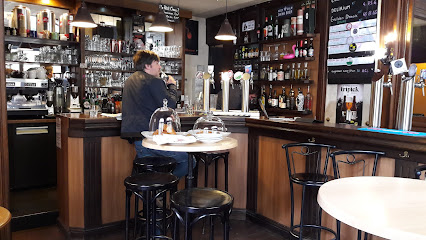
The Black Flag
Discover the vibrant nightlife at The Black Flag, a premier cocktail bar in Bordeaux, perfect for enjoying expertly crafted drinks in a lively atmosphere.
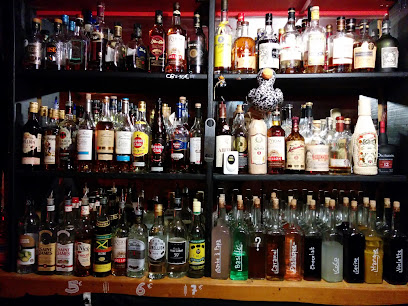
Chez le Pépère
Discover the essence of Bordeaux at Chez le Pépère, where fine wines and exquisite tapas create an unforgettable experience.
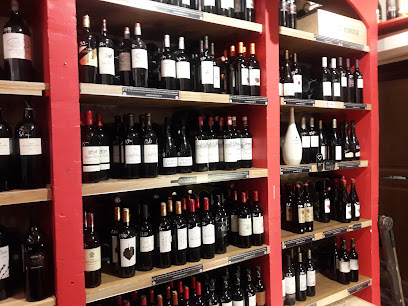
Le Vertige
Discover the essence of Bordeaux at Le Vertige, where exquisite wines and delightful dishes meet in a charming atmosphere.
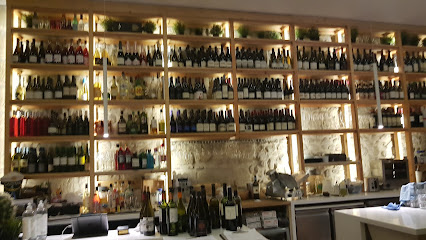
Local Phrases about Bordeaux Wine Region
-
- HelloBonjour
[bon-zhoor] - GoodbyeAu revoir
[oh ruh-vwahr] - YesOui
[wee] - NoNon
[nohn] - Please/You're welcomeS'il vous plaît/De rien
[seel voo pleh/dee ree-ehn] - Thank youMerci
[mehr-see] - Excuse me/SorryExcusez-moi/Désolé
[ex-kew-zay mwa/day-zoh-lay] - How are you?Comment ça va?
[koh-mohn sah vah] - Fine. And you?Bien. Et vous?
[byen. ay voo] - Do you speak English?Parlez-vous anglais?
[par-lay voo ahn-glay] - I don't understandJe ne comprends pas
[zhuh nuh kohm-prahnd pah]
- HelloBonjour
-
- I'd like to see the menu, pleaseJe voudrais voir la carte, s'il vous plaît
[zhuh voo-dray vwahr lah kart, seel voo pleh] - I don't eat meatJe ne mange pas de viande
[zhuh nuh mahnj pah duh vyand] - Cheers!Santé!
[sahn-tay] - I would like to pay, pleaseJe voudrais payer, s'il vous plaît
[zhuh voo-dray pay-ay, seel voo pleh]
- I'd like to see the menu, pleaseJe voudrais voir la carte, s'il vous plaît
-
- Help!Au secours!
[oh seh-koor] - Go away!Allez-vous en!
[ah-lay vooz ahn] - Call the Police!Appelez la police!
[ah-puh-lay lah po-lees] - Call a doctor!Appelez un médecin!
[ah-puh-lay uh mayd-sahn] - I'm lostJe suis perdu
[zhuh swee pair-doo] - I'm illJe suis malade
[zhuh swee mah-lahd]
- Help!Au secours!
-
- I'd like to buy...Je voudrais acheter...
[zhuh voo-dray zheh-tay...] - I'm just lookingJe regarde juste
[zhuh ruh-gahrd zhuhst] - How much is it?Combien ça coûte?
[kohm-byen sah koot] - That's too expensiveC'est trop cher
[say troh shair] - Can you lower the price?Pouvez-vous baisser le prix?
[poo-veh voo bez-ay luh pree]
- I'd like to buy...Je voudrais acheter...
-
- What time is it?Quelle heure est-il?
[kell ur eh-teel] - It's one o'clockIl est une heure
[eel eh tun ur] - Half past (10)Dix heures et demie
[dees ur eh duh-mee] - MorningMatin
[mah-tan] - AfternoonAprès-midi
[ah-pray mee-dee] - EveningSoir
[swahr] - YesterdayHier
[ee-air] - TodayAujourd'hui
[oh-zhoor-dwee] - TomorrowDemain
[duh-man] - 1Un
[uhn] - 2Deux
[duh] - 3Trois
[twa] - 4Quatre
[kat-ruh] - 5Cinq
[sank] - 6Six
[sees] - 7Sept
[sept] - 8Huit
[wheat] - 9Neuf
[nuf] - 10Dix
[dees]
- What time is it?Quelle heure est-il?
-
- Where's a/the...?Où est...?
[oo eh...] - What's the address?Quelle est l'adresse?
[kell eh lah-dress] - Can you show me (on the map)?Pouvez-vous me montrer (sur la carte)?
[poo-veh voo muh mohn-tray (soor lah kart)] - When's the next (bus)?Quand est le prochain (bus)?
[kahn eh luh proh-shahn (boos)] - A ticket (to ....)Un billet (pour ....)
[uhn bee-yay (poor)]
- Where's a/the...?Où est...?
History of Bordeaux Wine Region
-
The Bordeaux Wine Region's history of viticulture dates back to the Roman era, around the first century AD. The Romans planted the first vines in the region, recognizing its potential for producing high-quality wines. The fertile soil and favorable climate conditions contributed to the early success of Bordeaux wines, laying the foundation for the region's wine-making traditions.
-
In 1152, the marriage of Eleanor of Aquitaine to Henry II of England brought Bordeaux under English rule. This period saw an increase in wine exports to England, as Bordeaux wines became highly favored at the English court. The region's wine trade flourished, establishing a strong commercial relationship between Bordeaux and England that lasted until the end of the Hundred Years' War in 1453.
-
During the 17th century, the Dutch played a significant role in the development of Bordeaux's wine industry. They introduced techniques to drain the marshlands around the city, converting them into fertile vineyards. Their efforts expanded the wine-producing area and improved the quality of Bordeaux wines. The Dutch also helped establish Bordeaux wines in the international market, particularly in Northern Europe.
-
One of the most pivotal moments in Bordeaux's wine history was the official classification of 1855. Commissioned by Emperor Napoleon III for the Exposition Universelle de Paris, the classification ranked the top châteaux of the Médoc and Graves regions based on their reputation and trading price. This classification system, which includes prestigious names like Château Lafite Rothschild and Château Margaux, remains largely unchanged and continues to influence the Bordeaux wine market.
-
In the late 19th century, Bordeaux's vineyards were devastated by the phylloxera epidemic, a pest that attacked the roots of grapevines. This crisis led to the destruction of many vineyards and a significant decline in wine production. The recovery involved grafting European grapevines onto resistant American rootstocks, a practice that saved Bordeaux's wine industry and continues to be used today.
-
The 20th and 21st centuries have seen Bordeaux embrace modern winemaking techniques and technology. Innovations such as temperature-controlled fermentation, advanced vineyard management practices, and sustainable viticulture have improved the quality and consistency of Bordeaux wines. The region has continued to adapt, ensuring its wines remain competitive in the global market while preserving its rich heritage and traditions.
Bordeaux Wine Region Essentials
-
Bordeaux Wine Region is accessible through Bordeaux-Mérignac Airport (BOD), which serves both domestic and international flights. The airport is approximately 12 kilometers from the city center. From Paris, the high-speed TGV train offers a convenient option, taking around 2 hours to reach Bordeaux. Additionally, buses and car rentals are available for those who prefer driving.
-
Within Bordeaux, public transportation includes trams, buses, and bicycles, all operated by TBM (Transports Bordeaux Métropole). The tram network is extensive and efficient for getting around the city. For exploring the wine regions, renting a car or joining a guided tour is recommended. Taxis and ride-sharing services like Uber are also available.
-
The official currency is the Euro (EUR). Credit and debit cards are widely accepted in hotels, restaurants, and shops. However, it's advisable to carry some cash for small purchases or in rural areas. ATMs are readily available throughout Bordeaux, including at the airport and major tourist spots.
-
Bordeaux is generally a safe city for tourists. However, like any urban area, it's important to be cautious. Avoid isolated areas at night and be mindful of pickpockets in crowded places, such as public transportation and popular tourist attractions. The neighborhoods of St. Michel and Victoire can be less safe, particularly after dark.
-
In case of an emergency, dial 112 for all services including police, fire, and medical assistance. Bordeaux has several hospitals and clinics, such as Hôpital Pellegrin. Pharmacies are also widespread and can provide assistance for minor health issues. Always carry travel insurance that covers medical emergencies.
-
Fashion: Do dress smart-casual, especially when dining out or visiting wineries. Avoid overly casual attire. Religion: Do respect local customs when visiting churches or religious sites. Dress modestly and avoid loud behavior. Public Transport: Do validate your ticket before boarding trams and buses. Don’t eat or drink on public transport. Greetings: Do greet people with a 'Bonjour' when entering shops or restaurants. A handshake is common for formal introductions. Eating & Drinking: Do try local wines and delicacies. Don’t rush through meals; dining is often a leisurely experience.
-
For an authentic experience, visit the local markets like Marché des Capucins for fresh produce and regional specialties. Take a leisurely stroll along the Garonne River or explore the historic district of Saint-Pierre. Engage with locals, many of whom are proud of their heritage and happy to share recommendations. Don’t miss out on visiting a few lesser-known wineries to discover hidden gems.
Trending Landmarks in Bordeaux Wine Region
-
La Cité du Vin
-
Place de la Bourse
-
Jardin Public
-
Monument aux Girondins
-
Porte de Bourgogne
-
Grosse Cloche
-
Porte Cailhau
-
Pey Berland Tower
-
Pont Jacques Chaban Delmas
-
Porte d'Aquitaine
-
Bordovino Wine Tours
-
Bordeaux Wine Trails - Wine tours
-
RUSTIC VINES - 33000
-
OLALA BORDEAUX - Wine tours & tastings
-
The Wine of Bordeaux
Nearby Cities to Bordeaux Wine Region
-
Things To Do in La Rochelle
-
Things To Do in Limoges
-
Things To Do in Lourdes
-
Things To Do in San Sebastián
-
Things To Do in Toulouse
-
Things To Do in Pamplona
-
Things To Do in Bilbao
-
Things To Do in Nantes
-
Things To Do in Angers
-
Things To Do in Tours
-
Things To Do in El Serrat
-
Things To Do in Arinsal
-
Things To Do in Ordino
-
Things To Do in Santander
-
Things To Do in Huesca













